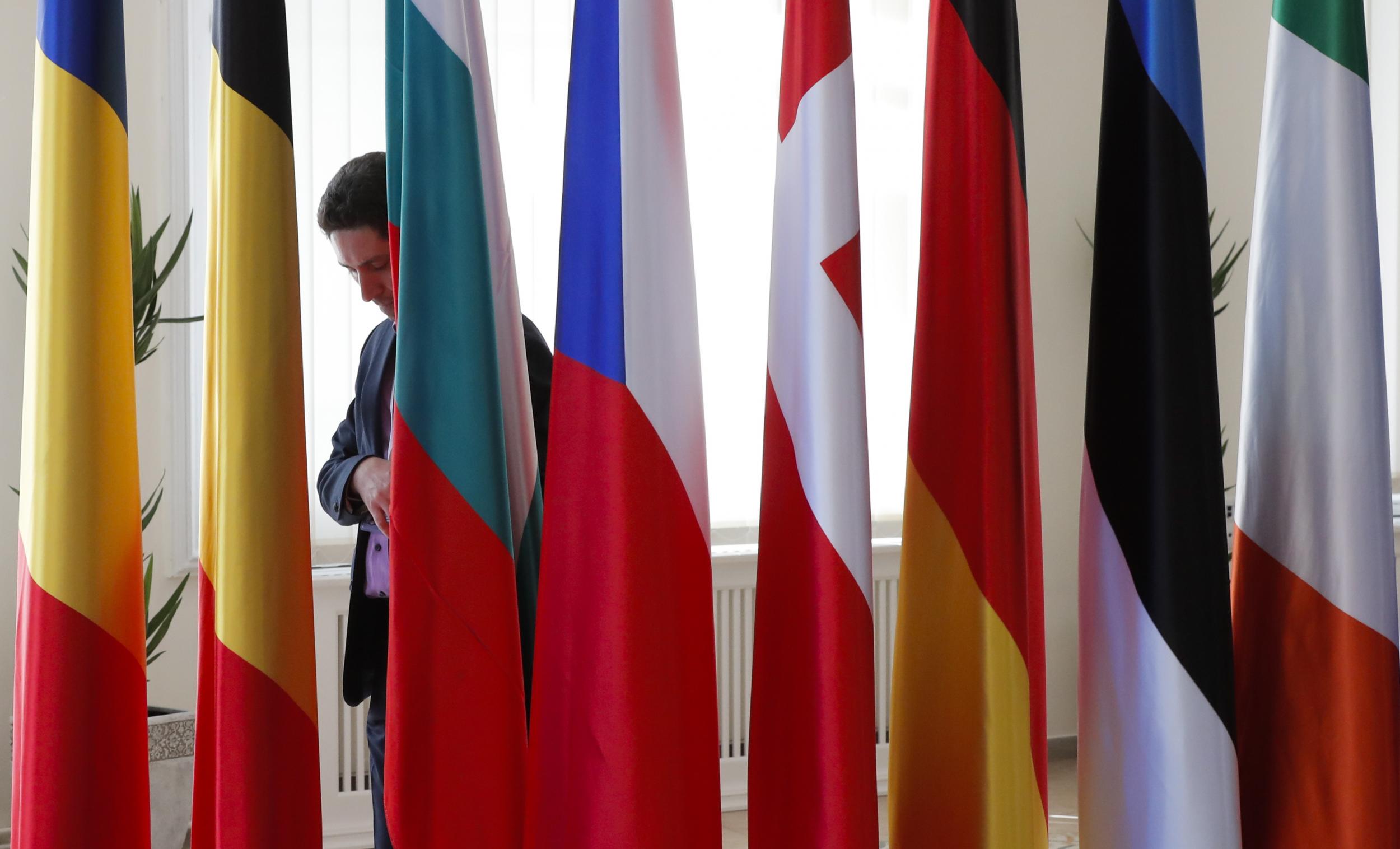UK’s top Brexit minister accuses Europeans of ‘lazy thinking’ for seeing Brexit as isolationist
Stephen Barclay questioned why Europeans associated Britain’s EU withdrawal with Nigel Farage
Theresa May’s chief Brexit minister has complained that Europeans are prone to “lazy thinking” about Brexit and for some reason associate the project with Nigel Farage and the “Little Englander” mentality.
Speaking at an EU summit in Sibiu, Romania, on Thursday morning, Stephen Barclay said Europe’s politicians should be more positive about Britain’s departure.
EU leaders are not expected to discuss Brexit at the leaders’ meeting, which was billed ahead of time as “in principle Brexit-free” by officials.
But away from the main action, Mr Barclay took part in a panel discussion, where he lectured Europeans over their attitude towards the UK’s vote to leave the bloc.
“Brexit from my perspective is about shared values, wanting to have a political relationship, identifying shared challenges, but being able to look forward rather than to constantly hark back to a vote three years ago,” he said.
Mr Barclay, for whom the discussion was his first major public appearance on the continent since being appointed in November, added that the decision to leave was often seen in Europe as “something to be punished rather than as an opportunity to be seized”.
“Too often I think there is a lazy thinking on Brexit,” the minister said, arguing that the referendum result was a vote for “confidence, optimism, a desire to be more global. It certainly was not the Nigel Farage Little Englander portrayal.”
He added that the continent’s politicians should consider the possibilities that the future relationship between Britain and Europe would bring.

Mr Barclay also gave a speech in the margins of the summit, which was attended by most EU leaders except Theresa May.
“We have always said we are not exiting Europe, but we share the same values, nor can we opt out of the challenges identified by the [European] Commission leading up to this conference in terms of security, cyber and the environment,” he told delegates, adding: “Historically the UK has always been outward in its outlook.”
The Brexit Secretary also claimed that the Leave vote was the will of “a new generation within UK politics” – rather than a vote primarily driven by the elderly, as most research suggests it was
“In more recent years some more established figures have been slow to accept that a new generation within UK politics wish to address the challenges of our age, the challenges we are looking at in this conference, like climate change, like economic growth, but to do so in ways that work with our neighbours whilst also offering scope for more flexibility and innovation,” he said
“We, the UK and the EU, face shared challenges, with shared values, but post-Brexit will do so from a different starting point in which the UK is not part of the EU, but it remains a part of Europe.”
The Sibiu summit was called by EU leaders to talk about the future of the bloc following the shocks of Britain’s departure, the migration crisis, and financial crisis. However, delays to the Brexit process mean that the UK has not left yet.
Join our commenting forum
Join thought-provoking conversations, follow other Independent readers and see their replies
Comments
Bookmark popover
Removed from bookmarks